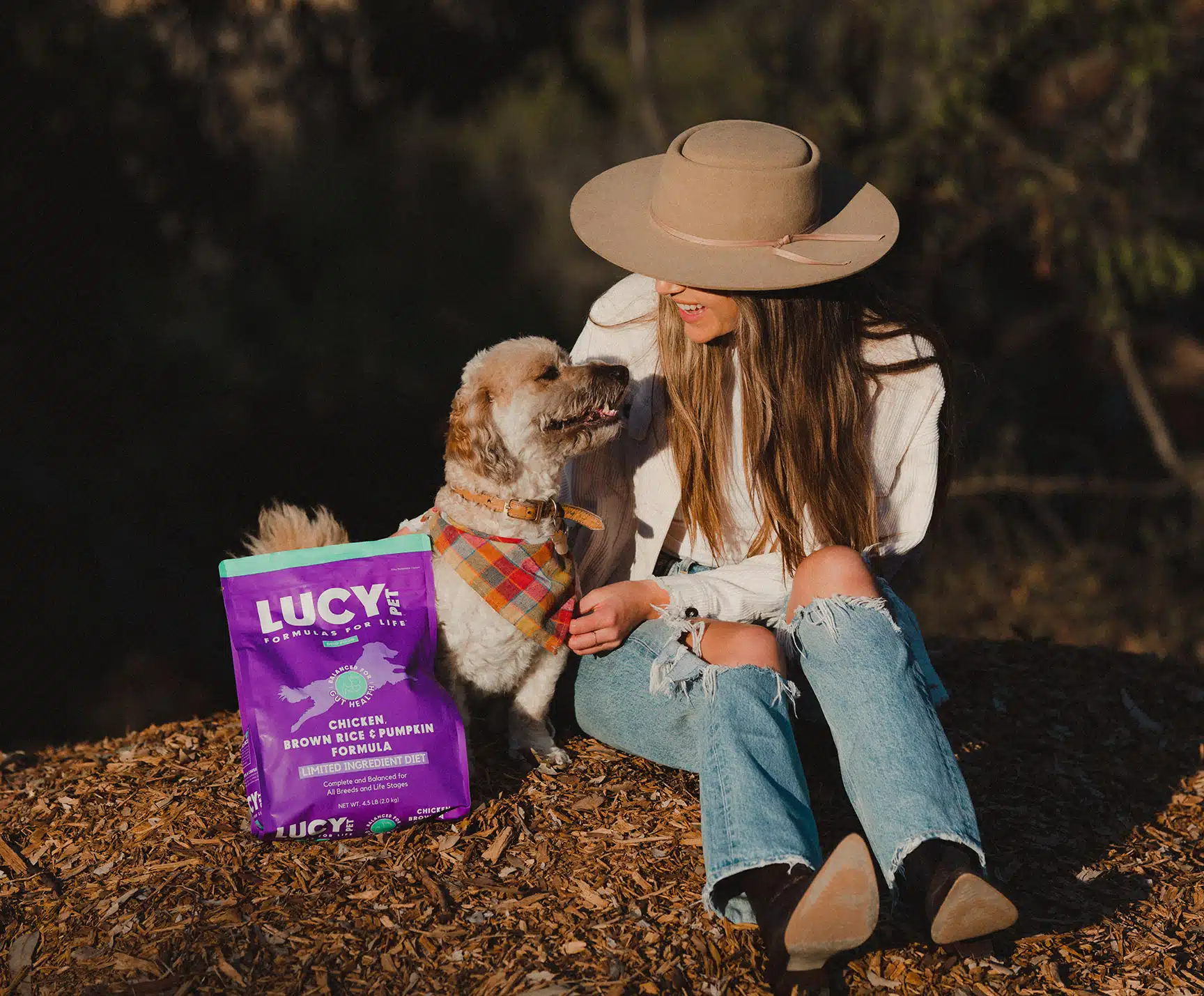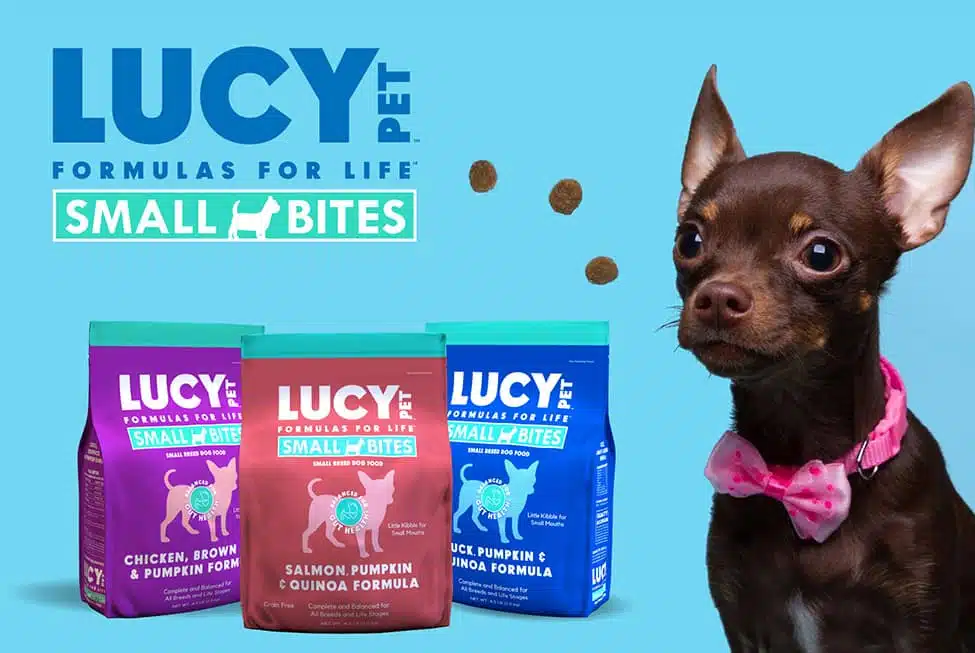
Signs and Symptoms of Constipation in Dogs
A dog’s digestive tract works quicker than that of humans. Depending on the size, breed, and metabolism of the dog, food can go from input to output in as little as ten hours. If your dog isn’t going number two at least once a day, they may be suffering from constipation.
Not all dogs give the telltale signs that alert owners to their defecation condition. Some will happily run into the backyard, assume the position, and appear to be pooping as they’ve always done. However, if you watch your dog closely, you’ll notice there are subtle signs that clue you into their digestion problems. Constipation has its own set of symptoms to keep an eye out for.
Symptoms of Constipation in Dogs
Constipation in dogs symptoms are typically combined with behavioral tics. Dogs can be acutely aware that something is wrong and communicate this through odd mannerisms. For example, when dogs have an upset stomach, they are less likely to run around or follow usual commands. Some of the most common behavioral symptoms pet owners should be aware of are:
- Circling a lot before squatting
- Constant squatting with no success
- Yelping, barking, or any other cries during defecation
- Excreting mucus from the anal cavity without any feces
- Stools are hard and dry
- Decrease in appetite
- Lethargy
- Random vomiting
Causes of Constipation
Causes of dog constipation vary, most often related to difficulty digesting something they have eaten that was not part of their usual diet, or some foreign bacteria or “stomach bug”. It could also include everything from chewing and swallowing hard plastic toys to hernias. Small foreign items may pass through the digestive tract eventually without harm, but if your dog has not pooped in more than 24 hours it could indicate a blockage, in which case you should immediately contact your vet. Knowing the root of the problem can help determine the proper treatment. If you’re struggling to figure out the underlying cause of your dog’s digestive system problems, always err on the side of caution and visit your local veterinarian to help determine the issue. The two main dog digestive system issues typically come from dietary and medical disorders.
Dietary Issues
What goes in must come out. If it doesn’t, this can spell trouble for your pooch.
Common dietary issues are usually a result of changed meal plans, inappropriate human food consumption, stress, or strange snacks found while scavenging the yard. If your dog is a young, curious pup, chances are they’ll be slopping up some unknown object and swallowing it before you have an opportunity to say, “Drop it!”
- Bones and other calcium sources – Although a dog’s stomach acid has a low pH (meaning it’s very acidic), they are able to small digest bones. However, bones are high in calcium, and too much can lead to constipation. Generally, it is not recommended to ever feed your dog “table scrap” bones.
- Fiber – Both soluble and insoluble fiber play an important role in proper digestion. Soluble fiber provides a food source for the bacteria living in your large intestine, creating a healthy biome. Insoluble fiber acts as bulk that pushes waste through the tract. Too little fiber and there’s no “train” pushing everything forward. Too much and it could clog up the system. When switching diets, be aware of changes in the amount of fiber your dog is ingesting and ensure they have access to plenty of fresh water.
- Medication side effects – When giving your dog medication for any number of problems, ask your vet if there are any side effects. Constipation is a common side effect of many meds. If it is, encourage your dog to drink water throughout the day to keep them hydrated. Ice cubes are a fun way to get them to ingest extra water in addition to their water bowl.
- Eating plastic or toy stuffing – When buying chew toys, make sure they’re made with your dog in mind. Some dogs can rip the most “indestructible” chew toys on the market. This can mean bits of plastic or “toy stuffing fuzz” can enter their digestive tract. The plastic or stuffing itself can pass through without being digested or poison your dog, but problems arise when these foreign materials act as a blockade. Observe your dog when they play with toys and watch for toys that get shredded so you can take them way, or any parts that become loose.
- Consuming excess hair– If your dog sheds a lot or if you have other animals (like cats) in your house, they may be consuming excess hair. Because hair isn’t digestible, these hairballs can collect and cause blockages in the digestive tract. It’s why cats often throw up hairballs instead of allowing them to pass through.
- Not enough water – Dehydration is a huge factor in constipation. Oftentimes, constipation is signaled by small amounts of dry feces. This means there’s not enough fluids in the system to keep the digested food moist and flowing through the GI
- Scavenged food – With their incredible sense of smell, dogs can sniff out any new invader of their territory. That could be a squirrel, a rotting piece of fruit, or a strange-looking bug. Unfortunately, that same sense of smell doesn’t alert your dog to what’s unhealthy for it to eat. Scavenged food can cause many digestive problems in dogs from vomiting and canine diarrhea to constipation.
Disorders Causing Constipation
Is constipation a result of something eaten or is it a symptom of something more severe? In cases where constipation is a symptom, there are several disorders that could be happening in the stomach, intestines, or anal cavity.
When a dog is younger, the problems tend to stem from dietary issues. However, older dogs tend to have nuanced problems resulting from organ systems failing to work properly. Here are some common disorders that could be causing your dog’s constipation.
- Enlarged prostate gland – The prostate gland is a necessary part of a male dog’s reproductive system. This means that neutered dogs will have less risk of prostate issues because the testosterone hormone is produced at a lower rate, thus shrinking the prostate. As a dog ages, hormone imbalances can occur and cause an inflamed or enlarged prostate. This can then create pain or blockage when a dog tries to defecate. Blood in the stool or ribbon-like feces can be signs of prostate problems.
- Orthopedic pain – If your dog has any severe bone or joint pain, you may notice they prioritize this over the pain of squatting. This can create serious digestive issues—one of which is constipation. The four most common orthopedic disorders include hip dysplasia, luxating patella, torn ligaments, and disc disease. Talk to your veterinarian about pain medication and other exercises that can help mitigate this pain.
- Obstructions in colon or anus – Tumors, polyps, and strictures can all be obstructing the tubes in your dog’s colon or anus. Tumors can cause blockages around the anal cavity or colon and should be treated by your vet right away. Polyps are benign growths that must be removed through Strictures, or the narrowing of the anal cavity, occur due to excessive scar tissue. Medication or surgery are typically needed to treat any of these obstructions. Effects may be temporary and require multiple treatments.
- Metabolic and endocrine disorders – Metabolic and endocrine functions include the processes that transform food into fuel and regulate hormones in the blood. Irregularities in these two functions can cause severe problems for dogs. Determining a metabolic or endocrine disorder from any other cause on this list comes from other behavioral problems. Mood swings, losing chunks of hair, or extreme lethargy can be a result of improper hormone control.
- Hernia – Hernias often cause painful defecation and straining for the dog. Swelling or inflammation from the hernia can cause other problems, even blocking off the ability to urinate. If a hernia is suspected, visit your veterinarian immediately to determine which organs are involved.
Other Constipation in Dogs Causes
While diet and internal disorders are the two most common sources of canine constipation, there are other causes as well.
- Lack of exercise – Exercise on a daily basis will keep your dog happy and healthy. Getting the blood flowing helps with heart disease, circulation, and mental performance. A lack of exercise will have the opposite effect on a dog’s body. Dogs should be taken on walks every day and allowed to run around a park at least once a week.
- Increased stress – Similar to humans, dogs can experience adverse effects resulting from stress. Moving homes and traveling, for example, can cause your dog to hold it in. Not all dogs react this way, however. Some treat stressful situations as a chance to relax all internal organs and let it out. It all depends on your dog.
Treatments
Today, people have a tendency to check with “Dr. Google” to self-diagnose. While this can be informative, it could lead you to inaccurate information. Scouring around Google with searches like, “constipation in dogs what to give,” will yield a wide range of results from traditional veterinary care, drugs prescribed by veterinarians, over-the-counter laxatives, or homeopathy. Never give your pet human medications. Your vet will inform you what products may be canine-specific, or to ensure the dose is correct for your pet’s weight, age, and other conditions. With all these different options, knowing what’s right for your dog’s chronic constipation can be tough. When in doubt, call your local veterinarian.
The two main treatment plans for canine constipation include:
- Prescription drug treatment for disorders
- Diet change for digestion
Drugs for Disorders
As scientists are researching more into gut health and biomes, the evidence is becoming clear. Diet and proactive gut care play a significant role in the overall mental and physical well-being of an animal (and human). Proper diet acts as preventative care, anti-inflammatories, and systems regulation. But when there’s a serious problem, diet alone may not be able to fix it. This is when prescribed medicine is needed.
- Laxatives or stool softeners – In cases where constipation is a one-off symptom of something they ate or a sickness, stool softeners can be the medication that sets their digestion back on track. Always speak with a veterinarian before administering any drugs to your pet, even if they are meds you had from another pet in your home.
- Digestive medications – If the digestive process is malfunctioning in some way due to hormonal or other enzyme imbalances, your veterinarian might prescribe gastrointestinal medications. This could be to help the large intestine contract more effectively or to help the stomach digest the food easier. The medication depends on the underlying cause.
- Pain medication and antibiotics – More serious causes of constipation include pain management or surgical intervention, pain meds and antibiotics might be required to help your dog return to its normal life. Pain medication should be managed to help your dog function properly. Remember that antibiotics should be given exactly as directed on the prescription.
Diet for Digestion
To keep your dog in a youthful, happy state, a healthy diet is key. Proper foods can keep hormones in balance, provide your dog with all the vitamins and nutrients it needs, and keep the digestive tract clear of unwanted chemicals. Talk to your vet to see if wet food vs. dry food is right for your pet. Constipation relief in dogs comes from feeding a food that promotes a good balance of fiber along with the total nutrients for gut health.
Here are some dietary boosters for your dog.
- Pumpkin – Not only do dogs go crazy for the taste, but pumpkin is a superfood for dogs’ digestion. It is high in fiber and water content, which means it can help push any blockages along.
- Prebiotics for a healthy gut – Foods such as quinoa, chickpeas, pumpkin, and sea kelp all offer natural forms of prebiotic fiber. Prebiotics are necessary to fuel for gut biomes to thrive. And gut biomes are necessary for the proper breakdown and absorption of nutrients. This affects how the organs perform and how much energy a dog has to run around and exercise—another necessary component for beating constipation.
- Omega-3 fatty acids – Flaxseed and salmon are two common ways to ingest omega-3 fatty acids. These combined with sources of vitamin E provide healthy digestion, strengthen a dog’s coat, and promote healthy skin.
- Metamucil or wheat bran – Proper fiber intake is one of the key digestive factors in healthy bowel movements. If you suspect that the amount of fiber in your dog’s diet is too low, Metamucil or wheat bran are safe alternatives. Just be sure to check in with your veterinarian. Overdoing the amount of fiber in the diet will have the opposite effect on your four-legged companion. The better solution would be to switch your dog’s food to a quality diet that focuses on gut health by providing a blend of quality fibers.
Changing Diets
When you change a dog’s diet, if you change too quickly, this can lead to adverse side effects such as diarrhea or constipation. It can take days or weeks for a dog to get used to the new food, even if the new diet is healthier than the old one.
Try to change diets gradually, increasing the amount of new kibbles by 10% each day. Over a period of 7-10 days, the entire diet will change, and your dog can avoid the negative consequences that come with a changing diet.
Choosing the Right Food to Start
Constipation in dogs is never fun to deal with. The underlying causes can range from eating something funky in the yard to a hormone imbalance due to an endocrine disorder. If constipation corrects itself after a couple of days, it’s safe to say the former was more likely the cause. However, if constipation becomes a frequent hassle, or if it extends beyond 48 hours, it’s time to visit the veterinarian. Always observe your dog for significant changes in behavior, particularly if they are excessively lethargic or refuse to drink water.
When the cause is persistent, it could point to a diet problem. For dietary changes, and for pet owners who want to offer their dogs nutrient-rich foods, think Lucy Pet dog foods. There are different recipes, each precisely formulated with a variety of quality proteins, vegetables, complex carbs, and a blend of fiber needed for a healthy gut and a happy life.
Sources:
Pet Health Network. Does Your Dog Have an Appetite for Life? http://www.pethealthnetwork.com/dog-health/dog-diet-nutrition/does-your-dog-have-appetite-life
Pet MD. Prostate Gland Enlargement in Dogs. https://www.petmd.com/dog/conditions/reproductive/c_dg_benign_prostatic_hyperplasia
The Dog Digestive System: https://www.lucypetproducts.com/the-dog-digestive-system-lucy-pet
7 Most Common Dog Digestive Issues: https://www.lucypetproducts.com/7-most-common-dog-digestive-issues
Causes of Diarrhea in Dogs: https://www.lucypetproducts.com/causes-of-diarrhea-in-dogs-lucy-pet
Dry vs Wet Dog Food: https://www.lucypetproducts.com/the-truth-about-kibble
Prebiotic Fiber and Gut Health for Dogs: https://www.lucypetproducts.com/prebiotic-fiber-and-gut-health-for-dogs-and-cats







Leave A Comment
You must be logged in to post a comment.